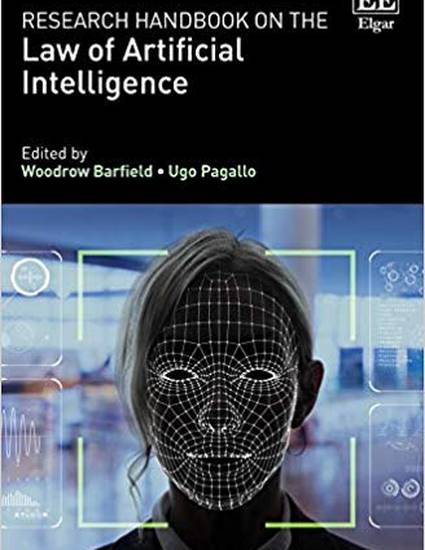
Contribution to Book
Robot Law 1.0: On Social System Design for Artificial Intelligence
Research Handbook on the Law of Artificial Intelligence
(2018)
Abstract
The focus of this chapter is on the issue of how artificial intelligence (AI) may influence the evolution of a legal framework for human-robot co-existence. In this chapter I use three legal paradigms, Robot Law 1.0, 2.0 and 3.0, to analyze law and policy as related to AI in different technical stages of development. As an important issue, under the category of Robot Law 1.0, I discuss the concept of“Social System Design,” a strategy that aims to improve integrated governance for embodied AI. As artificially intelligent robots become more common in human society, it will be especially important to consider the ethical, legal, and social impacts implicated by the design of such systems. The concept of Social System Design will not only benefit legislators and policy makers, but also lead to an efficient regulation of intelligent robots and their AI-driven risks. As another laudable goal, Social System Design will also be helpful towards embedding social values into increasingly intelligent robotic systems. Thus, given this design paradigm which is based on a human-centered value system, artificially intelligent robots will more likely abide by moral obligations, an important goal for artificial intelligence researchers and society in general. Issues of morality accompanies the Robot Sociability Problem, which as discussed in this chapter has many facets, and suggests that an interdisciplinary approach towards thinking about the design of emerging intelligent sociable machines is necessary.
Keywords
- Robot Law,
- Social System Design,
- Law of AI
Disciplines
- Engineering and
- Law
Publication Date
Winter December 28, 2018
Editor
Woodrow Barfield and Ugo Pagallo
Publisher
Edward Elgar Publishing
ISBN
978 1 78643 905 5
Citation Information
Yueh-Hsuan Weng. "Robot Law 1.0: On Social System Design for Artificial Intelligence" Research Handbook on the Law of Artificial Intelligence (2018) Available at: http://works.bepress.com/weng_yueh_hsuan/108/
